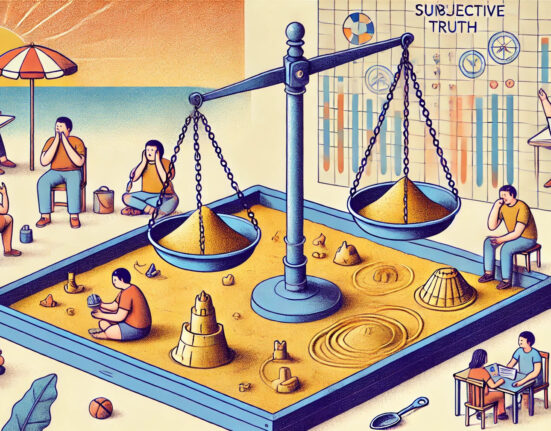At this time of year many of us go home to our families. These visits can be heaven or hell. YLC’s mental health contributor Lysanne Sizoo looks at the feelings of guilt – both healthy and unhealthy – that follow from parental expectations and our own life choices.

Birds of a feather flock together
After his retirement from the navy my father took a role in local government. By then, his daughter was living and working in London, and his son, having followed in his father’s footsteps, was sailing the seven seas. Both my parents had spent much of their own lives either travelling or living abroad. My brother and I were just following suit. In contrast, families who lived in his constituency’s council housing often visited him about their own ‘soon to leave home’ offspring. Hot tears were cried in his office when a daughter or son could not be placed within the same neighbourhood or street as the parents.
There are different ways of approaching the world, different expectations about how big a world we want to embrace. It’s when parental expectations, spoken out loud or implied, differ from our own, that we feel tension and very often guilt. Assuaging this guilt by trips home that you don’t really want only seems to make things worse.
Differing expectations
As with all parental expectations, part of growing up is to firmly decide which one’s we can and which we can’t meet, be they about our sexual identity, our careers or our place to live. Until we get past the ‘childish’ feelings of guilt and the helplessness, it’s impossible to connect with our own sense of how much, or how little you want to meet expectations. Maybe your parents expected you to be a belly dancer and you became a scientist instead. You’re an average but happy scientist and at some point you will feel the need to stand up for the scientist in you and put parental expectations back in parental laps where they belong.
Of course it feels as if the choice of living abroad just adds more fuel to the fire, but it’s the very fire you need to address, not the fuel! If anything, living abroad might make it easier to stick your head in the sand and refuse to deal with an expectations mismatch. Yet on trips home, the elephant in the room will be occasionally lit up by comments about other people’s amazing children, and your feelings of guilt will bubble up and over. Another visit is ruined.
Sibling rivalry
Envy and sibling rivalry come hard on the heels of guilt. Who hasn’t called home to enquire about a poorly parent and was told; “don’t worry about coming, you wouldn’t know what to do anyway, but thank goodness Sarah knows all the doctors here?” Unless you are clear in your own mind about it being okay to choose a life abroad, then you will never have the clarity of hearing that can filter out hidden meanings in a message such as the above. Fact is, sister Sarah probably is a much better help to them right now. So find out how you can support her, instead of being eaten up by sibling rivalry or guilt.
Again, it is just a more complicated variation on the entirely common theme, with parental expectations on the one hand and you and your siblings’ needs and desires on the other. But once we’re hooked by unhealthy guilt, it becomes very easy for us to hear accusations and slights in all manner of communications, even where they’re not intended.
But don’t I have obligations to my parents?
Even in the healthiest of families there is a tension between the right of children to individuate and stand on their own two feet and the sensitivities of the parents who would like to feel they still have some minor role to play in their children’s lives. In some cultures, parents are there for children so that the children will be there for them in old age. Maybe this will be out of obligation and duty, or out of love. I’m not so sure I agree with that view, although I respect those that can lovingly hold it.
I resonate more with Bert Hellinger, founder of the Family Constellations theory. He holds parents responsible for giving their children selfless love, tolerance, generosity, guidance, etc. This ‘investment’, handled well, is then the responsibility of the children to pass on to their children, NOT back to the parents.
It’s nice if they do, but it is not, according to Hellinger, their obligation, nor their responsibility. We take from the previous generation (and boy do we take!) and pass it on to the next. Parents that truly did the best they could for us, surely must prefer to be visited from a place of love, rather than a place of obligation and guilt.So if you can’t find that place of love, then you need to ask yourself what is causing the obligation and guilt that stand in the way, or replace it?
‘Is it time for an expectations reality check?’
Are you feeling so guilty that you are hearing slights and demands in every phone call when they’re not there? Is every visit spoiled by recriminations? Or are you conditioned by your environment or culture to believe that you have an obligation to them? Just stop and think because whatever the answer, it is neither serving you nor your parents. So sort through and figure out what you would be willing and able to give from a clear place of love. Take unmet expectations that you will never meet and gently lay them back at their feet. And then stick to that and be the grown-up child that you are.
When the guilt comes from a healthy place
Permission to live countries away from parents who expect nothing from you other than to be leading happy and fulfilling lives is a huge blessing. And with that blessing comes a natural concern for their wellbeing. When there is little we can do, we have to let others step up and do it in our stead. The lady from whom we bought our house in Sweden reminded me a lot my own grandmother. I sometimes felt bad I couldn’t spend more time with her and so I made sure to invite the former owner of our house round for tea on a regular basis. Not only did I enjoy her company, but in a way I was hoping that somewhere, someone was doing the same for my grandmother.
‘We do what we can, where we are, and let go of what we can’t, because of where we’re not.’
And sometimes things get seriously tough. After my mother died my father went through some very rough times. I had just become a mother myself and so even if I wanted to spend every weekend with him, I couldn’t. Many nights I would hang up the phone and feel guilty and helpless in the face of his suffering. Yes, against all reasonable argument, up welled feelings of guilt and wanting to be a better daughter. My physical presence, in those first months, would have made a difference. Seeing his first born grandson would have, if nothing else, temporarily distracted him from his grief.
The guilt and the helplessness that I felt at that time were not to do with expectations, not from my dad, nor from my environment. But they resulted from the terrible sadness of the situation that we were in. I was helpless; and yes, my decisions did make me responsible for the life choices that took me out of his life when he needed me there. And yet, having revisited all the choices I could sensibly make, I was left with accepting that it ‘is what it is’, as my colleague always says. So from a clear and compassionate place inside myself I tried to do the best I could. I offered the best support that I could muster, and for the rest, I had to stand back and let other people play roles that would have been mine to play had I stayed home. Letting go of the guilt, so that it wouldn’t turn into resentment or jealousy, was the active part in the equation.
In summary:
In this article I’ve looked at two kinds of guilt and helplessness. The unhealthy kind that comes from mismatched expectations, that can really cloud the issue of living abroad AND the healthy kind, that comes from being able to stand up for your life choices, and carry the consequences that those life choices have, both for ourselves and for our parents.
In the next part of Old age and Abroad, we will be looking at how we experience our own middle and old age, away from home.
Lysanne Sizoo
DISCLAIMER
These articles are a composite of my personal, my colleagues’ and
clients’ experiences in order to protect recognition. All therapeutic
meetings are Turning Point are confidential, and specific content would
never be shared in a public forum.
If you have any specific problem that you would like Lysanne to consider in her articles, please contact her here (anonymity will always be preserved).
Lysanne Sizoo is the founder and director of Turning Point, the only international counselling centre in Stockholm. In 2008 she obtained her psychotherapy license from the United Kingdom Council for Psychotherapy. She has been practising as a counsellor and psychotherapist since 1997, specialising in the field of cross cultural issues, as well as fertility, bereavement, parenting, anxiety and stress management.












